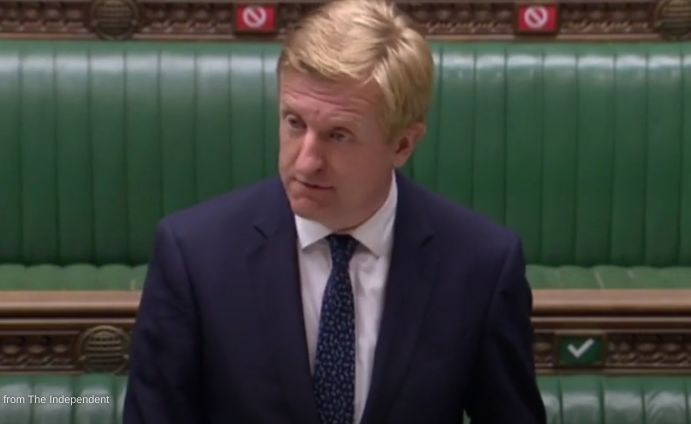Boris Johnson’s first premiership was marked by drama, defection, and parliamentary deadlock. How has he done the second time around? We take a look at his performance since his December landslide victory.
Largely unharmed by its leader’s colourful personal scandals, last December the Conservative Party gained its most significant victory since Thatcher’s 1987 landslide. Perhaps Boris Johnson and his cronies were not electoral geniuses, as they had been conveniently pitted against an increasingly unpopular Labour leader. Still, the result seemed to justify the means. Boris had blown the naysayers out of the proverbial water. After years of uninspiring Brexit bungling, the parliamentary floor was his to do as his party wished.

Brexit
Arguably the biggest reason behind Boris’ success, particularly in the traditionally Labour-voting heartlands, was his tough stance on Brexit in comparison to his predecessor and the divided shadow cabinet. Predictably the issue has taken a backseat to the Coronavirus crisis. On January 31st, the UK officially left the European Union, and its transition period will not be formally extended beyond December 31st 2020. Yet the future of the UK’s relationship with the EU remains uncertain. Boris Johnson did not create the Brexit quagmire. Still, the success of the deal (or lack thereof) reached by his government will surely define how subsequent generations view the movement to exit the political bloc.
Foreign Policy

Johnson’s stint as Foreign Secretary in May’s cabinet proved brief and unexceptional. As Prime Minister, Johnson has proved as decisive as he is divisive. The mid-June announcement that the Department for International Development was set to be absorbed into the Foreign Office ignited fiery protest from many sides. The Guardian described the move as “fuelled by the corrosive idea… that a generous Britain is being taken for a ride by foreigners.”
The decision appears to be a somewhat token attempt to satisfy foreign aid sceptics in the Tory Party, and the government remains committed to spending 0.7% of its gross national income on international development. More useful would be comprehensive of the UK’s foreign aid budget and structure, to ensure aid is justified and effective.
Furthermore, despite defending controversial plans to allow Chinese corporation Huawei — which has faced allegations of espionage — to construct Britain’s 5G infrastructure going forward, Johnson has since made a U-turn.
There has also been a significant shift in the rhetoric against the Chinese regime in the wake of its repressive National Security Law aimed at Hong Kong, revelations regarding the abuse of Uighurs and other minorities, and ongoing questions regarding the Coronavirus outbreak.
Hong Kong citizens have since been offered a fast-track to UK residency, and the extradition treaty with China has been suspended indefinitely.
How Johnson responds to China’s ongoing threat will no doubt define his legacy over the coming years.
Coronavirus
The initial stages of the Coronavirus outbreak were marked by some degree of national unity, with general public support of the lockdown implemented in March.
The statistics on COVID-19 deaths remain spotty, but one thing is clear: there was an abject failure by the NHS and the government to ensure the virus did not spread to care homes housing the elderly- the demographic for whom COVID-19 is demonstrably more fatal. No doubt this scandal and criticism of the lockdown policy (from both those who thought it too heavy-handed and others who thought it not strict enough) will form the basis of much scrutiny at the next general election.
Late last week the government announced — after initially deciding the opposite — that returning holidayers from Spain would be forced to quarantine for two whole weeks. Transport minister Baroness Vere of Norbiton confirmed the idea might yet be reversed once again, after pressure from Madrid over the change to travel advice made by the government over the weekend.

Johnson’s ideological eclecticism may have once made him a compelling columnist, but his tendency to back-pedal and frequently change tact does not bode well for a Prime Minister.
Economy
For a man who enjoys waxing lyrical about the achievements of the free market, Johnson’s approach to the economy has been surprisingly Soviet. The government’s response to the threat of Coronavirus, shut down swathes of the British economy. One thing is clear, the current emergency provisions cannot last forever. Sources from the New Statesman to The Spectator have sounded the alarm bells regarding an impending implosion with the possibility of rivalling the Great Depression.
Borders
One of the key reasons for the “Leave” vote was a desire to restructure the type of immigration to the UK, in favour of an Australian points-based system for example.
Meanwhile, during the first half of 2020, over 500 illegal immigrants gained access to the UK across the English Channel and disappeared without a trace, likely into exploitative informal sector work. This debacle does not just fail British voters. The government has failed the very people seeking safety and opportunity in the United Kingdom by incentivising dangerous illegal smugglers and ignoring the impact of unchecked unlawful immigration on both host and source countries.
The early days of this government have been beset by such challenges that its success at the next election will likely rest upon public perception of how they were handled. The uneasy consensus of summer 2020 could easily tip to intense disapproval in the event of an economic crisis. The only thing certain about the years ahead is that the United Kingdom will face a heavy dose of uncertainty.


